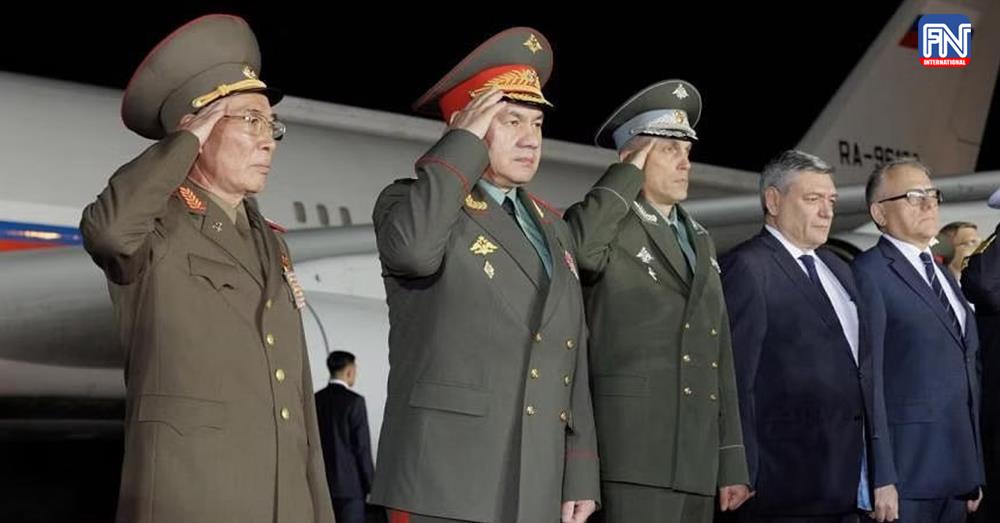SEOUL/MOSCOW, July 25 (Reuters) - A Russian delegation led by Defence Minister Sergei Shoigu has arrived in North Korea, the ministry said late on Tuesday, joining a Chinese group as the first such public visitors to the country since the start of the pandemic.
The two delegations will take part in the celebration of the 70th anniversary of "Victory Day" on Thursday in Pyongyang, state media agency KCNA reported, with Chinese Communist Party Politburo member Li Hongzhong leading the Beijing group.
Russia's Defence Ministry said it had been invited by its North Korean counterpart and would attend the Victory Day events.
"This visit will help strengthen Russian-North Korean military ties and will be an important stage in the development of cooperation between the two countries," the ministry said in a statement.
The ministry posted a short video on its Telegram messaging app showing Shoigu being greeted by a North Korean military official on a red carpet at an airport's tarmac.
A red banner with a sign saying, "Welcome, Comrade Defence Minister of the Russian Federation Sergei Shoigu!" in Korean and Russian stood behind a line of saluting soldiers.
North Korea closed its border in early 2020 to all trade and diplomatic exchanges, even with its main economic and political partners China and Russia. The state media report did not say whether the visits marked any change in policy.
The anniversary events are expected to include a major military parade in North Korea's capital.
China asserted on Monday that it "strictly" implements U.N. sanctions on North Korea, reacting to a letter from the Group of Seven, the European Union and others that urged Beijing to stop Pyongyang from evading the measures by using Chinese waters.
China's exports to North Korea in June were eight times higher than a year before, when the secretive state was reporting tens of thousands of COVID-19 cases per day and had shut its border.
The United States has accused North Korea of providing military aid to Russia for the war in Ukraine, a claim that both Pyongyang and Moscow deny.
Russia and North Korea, who both have frosty relations with the United States, have long enjoyed friendly ties with each other even as Moscow has tried to help broker a deal on Pyongyang's nuclear weapons programme.
U.S. State Department deputy spokesperson Vedant Patel said on Tuesday that both Russia and China "can use their influence over the DPRK (North Korea) to encourage them to refrain from threatening, unlawful behaviour.
"They also have a potential role to play in encouraging the DPRK to return to the negotiating table," Patel said.
